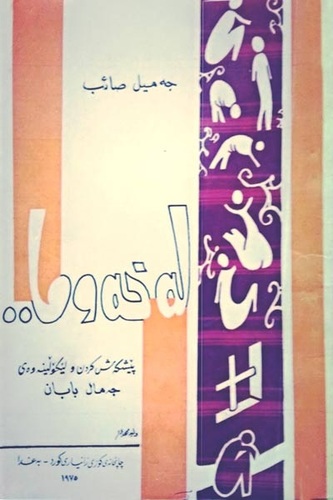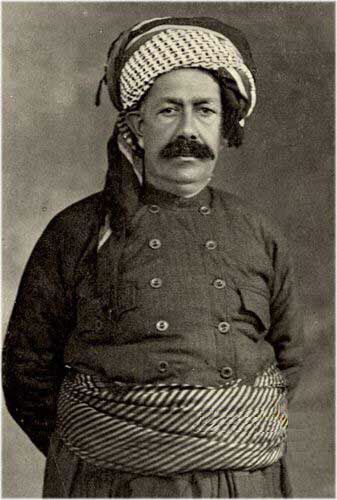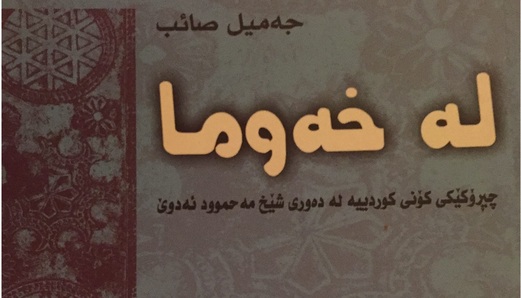However, apart from these four groups, Gawra himself wants to have a relationship with another group. They are the religious figures and Mullahs. He wants them to announce Fatwa against all his opponents so that he can oppose them easily and destroy them. Thus, he creates a group of them and makes them announce Fatwa.
He began to speak angrily. I have been tried for some years now in all kinds of hardships, from imprisonment to very bad conditions… I traveled to England several times, I ended my relationship with the Turks, and I insulted the Russians and the Bolsheviks. We sacrificed many lives. I have tried to make peaceful and convenient conditions for my nation so that we could enhance our religious practices. But … the majority of these people think I have followed nonbelievers and … what do you think a religious Fatwa for such people must be?
These parts that were mentioned above were some of the important parts of this novel so that understanding the story structure and meaning would be easier. That is, the writer would have wanted to make his story more meaningful, and by narrating his story in a well-ordered manner to reveal an aspect of Gawra's character in each part. This is a strong thing to do for a story written a century ago as the first Kurdish narration experience.
This narration shows us a character who is confused in the midst of the political events happening in the Middle East after World War I in a way that he cannot make up his mind to make a decision. At the same time, that is around 1924 and a few years before and after it, this region's geography encountered the most complex situation. The Ottoman Empire was destroyed. The young Turks had just begun their work and they were trying to protect their inherited lands from the Ottomans and even expand it if possible. Britain and France were quarreling over their share in the region. In this situation, Kurds were caught among British, French, Turkish, Persian, and Arab pressures and the Kurdish leaders could not decide to rely on which party. What the political events of that time indicated is the same as what Jamil Saeb narrates in his book, In My Dream. However, the writer's wise decision was to choose symbolic names for his characters so that his story would never expire. The time and place of the events are not clear, either.

The smart reader can figure out that the geography of which the writer is describing is Kurdistan based on the signs in the story. The city that has become a place for the riders to rush in it and the plunderers, revolutionists, and spies where prisons have been built in it and people doubt each other, is Suleimani at the beginning of the twentieth century.
The Great Man or Gawra, is Sheikh Mahmoud Barzanji who ruled in Suleimani and got really confused among the Turks, British, and Islam. Finally, he could not make a decision, and each time he inclined the route of the events towards one party; thus, his government deteriorated at last.
However, what was mentioned, was only one aspect of the novel of In My Dream.
If we discuss the exact structure of the story, we should say how witfully the writer had paved the way for political novels a hundred years ago in addition to what was discussed above about the story.
The story narrator is in a part of the country, in a very bad financial situation, trying to make money for his family's sake, and goes to a city that is exactly the capital city of that new government. He faces threats and difficulties both on his way and in the city of his dreams where he gets arrested and imprisoned as a spy. Finally, the Gawra himself convicted him and whipped him. He narrates the deterioration of that government by expressing the events.
One of the good techniques the writer applies in this story to show the Gawra's unstable decisions and his lack of confidence and stability of mind is that he narrates the events and those groups who visited the Gawra while he was transferred from the prison to the Gawra's hall. He is surprised for all those changes that happen every time he sees a new group, so he begins to laugh hard which leads him to be punished.

Sheikh Mahmoud Barzanji
"In my dream" is both the beginning of Kurdish novels and modern political criticism of the government. This story is the most intellectual narration written in the Kurdish language on the governments up to now because the writer criticizes Sheikh Mahmoud's authority severely without any fear or doubt. The writer was undoubtedly informed of the incidents and he had seen Sheikh Mahmoud's influence and personality, however, he criticized both Sheikh Mahmoud's oppression of the citizens and his unpolitical and uninformed relationships with Turks and British fearlessly for the sake of the common benefits. He also criticizes religion and religious figures severely. All these, particularly a century ago in Kurdistan show that he confronted all kinds of holiness either politically, religiously, or socially.
Considering the time during which this novel was written, it possesses a fluent and rich language because regarding the contemporary newspapers of that time, for example, Zhin and Zhianawa, that was published under his management since he was chosen to do so by his uncle, Piramerd, had a very difficult language compared to Jamil Saeb's novel. Jamil Saeb chose a simple and fluent language for his novel deliberately and he tried to apply special slang for each group of characters in his book that are expressing themselves as much as he could.
Although In My Dream is the first Kurdish story and was published a century ago, the story's space and atmosphere are dedicated to the government and criticizing it.









